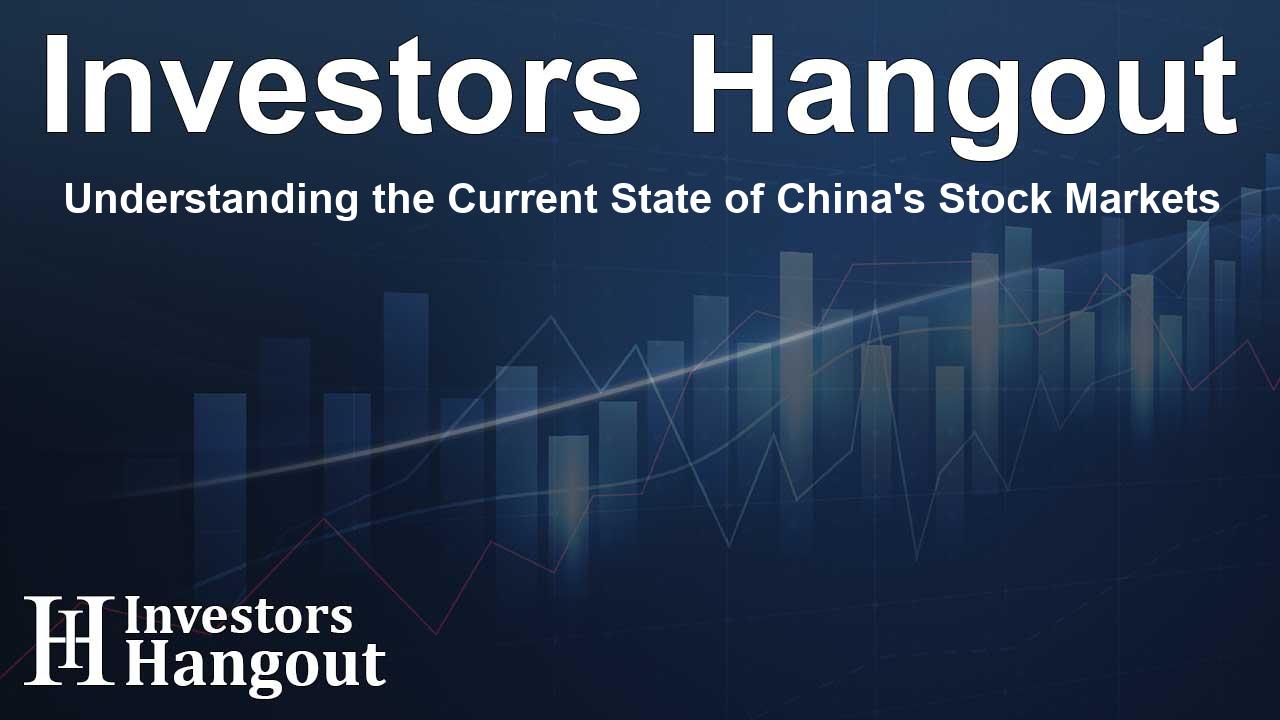Understanding the Current State of China's Stock Markets

The Downturn of Chinese Stocks
Chinese stocks have recently plunged to their lowest levels since early 2019, a stark indication of the growing unease among investors regarding the nation's earnings and economic recovery prospects.
Investor Sentiment and the CSI 300 Index
The CSI 300 Index closed down 0.4%, marking a significant decline of about 14% since its peak in May. This benchmark for onshore shares appears to be on track for a distressing fourth consecutive year of losses.
Long-Term Impact of Economic Challenges
Confidence in China’s ability to rebound quickly is waning, primarily due to a prolonged property crisis that is adversely affecting consumer behavior. This downturn poses a threat to the country's growth target of around 5%. Additionally, escalating geopolitical tensions have added to negative sentiment, especially with the upcoming US presidential elections drawing closer and both candidates intensifying their critiques of China.
Economic Analysis and Market Response
According to Nathan Chow, a senior economist at DBS Bank (Hong Kong), the persistent issues ranging from disinflationary pressures to subdued consumption and a stagnant property market have become alarmingly evident. The growing awareness of these entrenched challenges has led to a significant shift towards bearish market sentiment.
The Role of Government Intervention
In response to these market challenges, the Chinese government has initiated various measures this year aimed at stabilizing the economy. For instance, state funds have begun purchasing exchange-traded funds, supplemented by increased oversight targeting short-selling and quant trading practices. Despite these efforts leading to a brief rally earlier in the year, the ongoing declines suggest that traders are seeking more fundamental changes to address property sector woes and create a more business-friendly environment.
Risks to Market Stability
The enduring slump poses a significant risk not just to the market, but also to Xi Jinping’s administration. There is a growing concern that an extended market downturn could deepen investor pessimism and inhibit any potential economic recovery, creating a harmful feedback loop.
The Economic Landscape in August
Recent data indicates the economy is struggling to regain momentum, with factory activity contracting for the fourth consecutive month. Furthermore, core inflation has fallen to its lowest levels in over three years, highlighting the ongoing economic challenges.
Political Climate Influencing Market Dynamics
As the US elections approach, the rhetoric around China from both presidential candidates has intensified. Vice President Kamala Harris criticized Donald Trump for failing to protect American interests against China, while Trump has reiterated his stance on potentially raising tariffs further if he is re-elected.
Technical Level Concerns
According to Kenny Wen, head of investment strategy at KGI Asia, the potential breaking of the CSI 300's support level could lead to additional selling pressure. Should this occur, the index may revisit lows not seen since 2019 or perhaps drop even lower.
Conclusion
The current dynamics surrounding China's stock markets reflect not only the internal challenges of the economy but also the significant external pressures that influence investor behavior. As stakeholders navigate these uncertain waters, the focus remains on potential strategies to stabilize the market and foster an environment conducive to recovery.
Frequently Asked Questions
What is affecting Chinese stock prices currently?
The decline in Chinese stocks is influenced by a combination of a prolonged property crisis, weak consumer confidence, and rising geopolitical tensions.
How has the CSI 300 Index performed recently?
The CSI 300 Index has seen a decline of approximately 14% since its peak in May, indicating significant market challenges.
What steps is the Chinese government taking to stabilize the markets?
The government has initiated measures such as state fund purchases of ETFs and increased oversight on trading activities to address market weaknesses.
What are the potential risks to Xi Jinping’s administration?
Ongoing market slumps may further erode investor confidence and hinder economic recovery efforts, posing significant risks for the government.
How do geopolitical tensions play a role in market sentiment?
The intensifying anti-China rhetoric from US presidential candidates is affecting overall investor sentiment and adds pressure on the Chinese markets.
About The Author
Contact Caleb Price privately here. Or send an email with ATTN: Caleb Price as the subject to contact@investorshangout.com.
About Investors Hangout
Investors Hangout is a leading online stock forum for financial discussion and learning, offering a wide range of free tools and resources. It draws in traders of all levels, who exchange market knowledge, investigate trading tactics, and keep an eye on industry developments in real time. Featuring financial articles, stock message boards, quotes, charts, company profiles, and live news updates. Through cooperative learning and a wealth of informational resources, it helps users from novices creating their first portfolios to experts honing their techniques. Join Investors Hangout today: https://investorshangout.com/
The content of this article is based on factual, publicly available information and does not represent legal, financial, or investment advice. Investors Hangout does not offer financial advice, and the author is not a licensed financial advisor. Consult a qualified advisor before making any financial or investment decisions based on this article. This article should not be considered advice to purchase, sell, or hold any securities or other investments. If any of the material provided here is inaccurate, please contact us for corrections.
